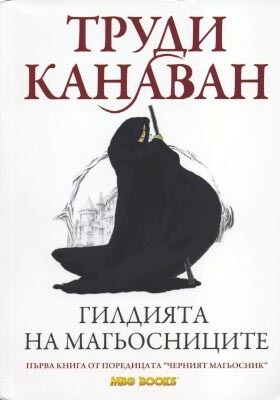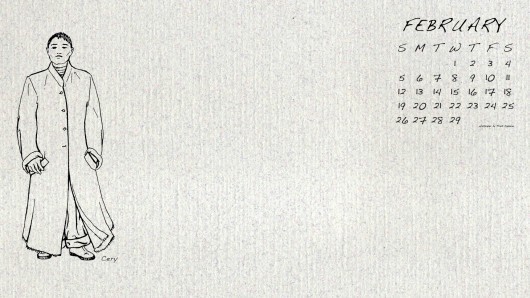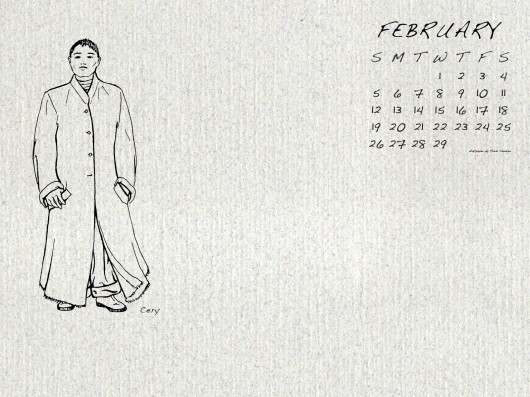Trudi Canavan's Blog, page 19
February 13, 2012
El Legado del Mago Negro
My lovely Spanish edition publisher has set up a website for my books called El Legado del Mago Negro (Legacy of the Black Magician) and a Facebook page to coincide with the release of La Maga (The Magician's Apprentice) last week.
So head over there to find information about me and my books, including release dates for the Traitor Spy Trilogy. More content will be appearing on the sites, including competitions (there's one on the Facebook page right now) and the opportunity to ask me a question.
February 5, 2012
Bulgarian Edition of TMG
Another foreign edition turned up the other day – the Bulgarian edition of The Magicians' Guild. I already have a Bulgarian edition of Priestess of the White, but it appears to be by a different publisher. I don't know if any other of my books have been published in Bulgarian yet – I usually don't find out until a book turns up in the mail.
Which leads me to remind readers that authors usually don't know what's going on with foreign edition titles. To find out which of my books are available:
1) first check the Books menu above. Under each title I've put covers of the books I've received
2) check online bookstores, or ask your local bricks & mortar bookstore to look it up
3) ask the publisher (who can tell you if they're planning to buy the rights to books they haven't published yet)
January 29, 2012
February Calendar
Here's the computer wallpaper calendar for February:
1920×1080 (or 1600×900)
1600×1200 (or 1024×768)
It was pointed out to me that the four screen resolution sizes I'd provided were really just two ratios. So long as you choose the right ratio, the computer should scale down the image to fit the screen. If it doesn't, let me know and I'll add a scaled down version.
Click on the image to get to a full size version. As before, if you don't know how to download and set images to be your computer screen wallpaper, seek the help of your usual source of computer advice.
January 11, 2012
10 Books I Enjoyed in 2011
It's getting on to the end of that time of year when people make lists of top ten books for the year. Last year I posted one, but because I'd only read ten books that year those ten were what it contained. I read a lot more books in 2011: twenty-eight plus six of my own books in the Great Reread of 2011, so I am spoilt for choice. It was hard to whittle the list down to just ten books. Here they are, not in any particular order:
Madigan Mine by Kirstyn McDermott
A creepy horror novel of love, betrayal and possession. I know Kirstyn and enjoy her short fiction, and it was… well, it seems weird to say I found her nasty little tale a delight to read, but it was.
Souless by Gail Carriger
And Changeless, Blameless, Heartless. Funny, action-packed, sometimes raunchy, unashamedly fashion-conscious steampunk adventures. Gail effortlessly writes in the style and language of the era without slowing the pace. There are werewolves, vampires and other supernatural manifestations along with the mechanical marvels, but it's a fresh take and nobody sparkles.
Eona by Alison Goodman (Also known as Necklace of the Gods.)
Following Eon (also known as The Two Pearls of Wisdom), Eona is a satisfying conclusion to this wonderful story set in a world based on Chinese mythology, with an ending I didn't see coming.
Debris by Jo Anderton
An amazing debut novel. The exact genre it fits into is hard to define. I'd have called it fantasy, but I've seen it referred to as science fiction. It would appeal to readers of both. It's like a cross between Bladerunner and Dark City. The idea behind the technology/magic is unique and brilliantly thought out, the characters are complex, and the plot is full of mystery and tension. My prediction for Best Fantasy Novel in this year's Aurealis Awards.
Leviathan by Scott Westerfield
I decided to investigate steampunk this year and picked up this book because of good recommendations and, well, I'm a sucker for a book with fabulous illustrations. A romping tale follows, set in a complex and strange alternate earth where technology is biologically based in one land and in another it's all about enormous, steam-powered machines. Great fun and I'm looking forward to the next books. I'm seriously considering buying this again in hardcover because the illustrations are wonderful, but don't look so great on cheap paperback paper.
The Kingdom of Gods and The Killing Moon by N K Jemesin
The Inheritance Trilogy has all the elements I love in fantasy: worlds that are fresh and not overly derivative of fantasy that's gone before, complex characters with both strengths and flaws, powerful magic that isn't just a substitute for technology but affects everything from the obvious like power structures to the subtle, like everyday attitudes and habits. Oh, and a compelling, gripping plot. And I cheated and slipped The Killing Moon in here, the first of a new series set in an entirely different world, but written as beautifully.
Power Unbound by Nicole Murphy
The second book in the The Dream of Asarlai series. If you like spicy paranormal romance, but are a bit sick of vampires and werewolves (or even if you're not but want a pacy fantasy romance) give this series a try.
You Suck by Christopher Moore
The sequel to Bloodsucking Fiends, which I remember calling 'What Vampire novels would be if 14 year old boys wrote them – but in a good way". Hilarious. I have Bite Me, the next one, near the top of my To Read pile.
Art Theory: A Very Short Introduction
A very small book that summed up the subject beautifully. Since reading it I've been heard to say, "Context! It's all about context!" more than a few times when the question "Is it art?" came up.
The Tipping Point by Malcolm Gladwell
After having enjoyed Outliers and Blink, I set out to read Malcolm Gladwell's earlier books. Though his ideas weren't quite as developed (obviously) the book was just as fascinating, and it was interesting to see he tackled a phenomenon also discussed in Freakonomics, another book I read last year, and came up with a very different answer.
January 6, 2012
The French Edition of The Rogue…
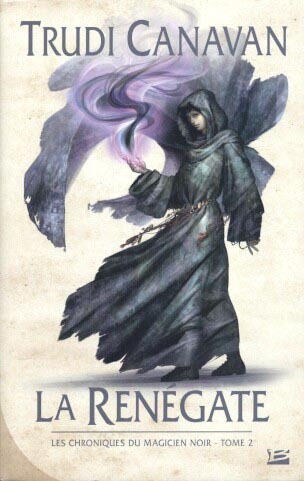 … arrived in the mail yesterday. Love the tattered robes and badass expression. I hope French readers are enjoying the ongoing story of the Traitor Spy Trilogy.
… arrived in the mail yesterday. Love the tattered robes and badass expression. I hope French readers are enjoying the ongoing story of the Traitor Spy Trilogy.
December 29, 2011
The Sekrit Projekt: My Gift To Fans
So what was all the sewing, photo-taking, sketching and drawing leading to? Well, I wanted to do something with the character sketches other than just put them on this website. So had the drawing scanned and dragged out my old graphic design skills to make a little complimentary gift for fans of the Black Magician Trilogy and the Traitor Spy Trilogy:
Computer wallpaper calendars:
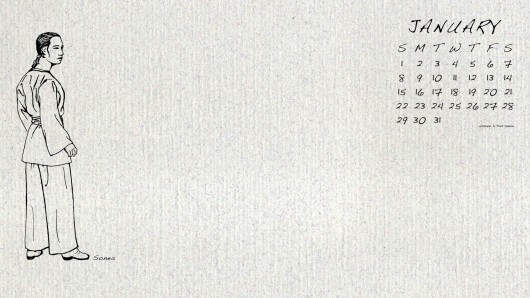
For a screen resolution of 1920×1080.
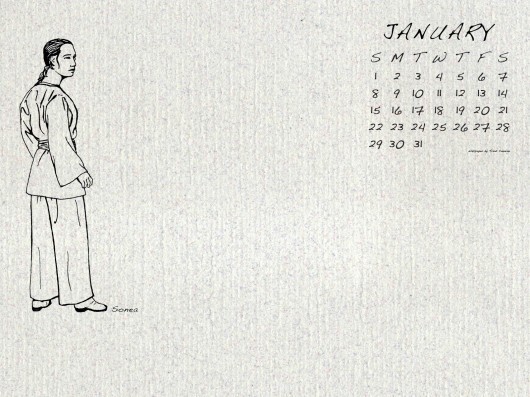
For a screen resolution of 1600×1200.
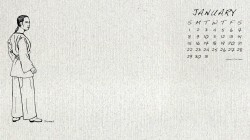
For a screen resolution of 1600×900.
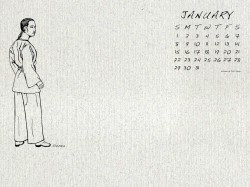
For a screen resolution of 1024×768.
Each month I will post a wallpaper featuring a different character – or two. Click on the image in the post that most closely matches your screen resolution and a new page should open containing an image that size. Then follow whatever instructions your kind of computer has for downloading the image and setting it up as wallpaper. (I'm no expert at how this is done, so seek the advice of your usual computer techie helper if you can't do this on your own.)
Of course, the you are welcome to use the images as computer backgrounds but please don't use them for other purposes. I have some other ideas for these drawings that I'd like to explore, but will see how things go with this one first.
December 28, 2011
The Sekrit Projekt: Stage Three
Years ago I took some photos of friends wearing the novice robe I'd made, to send to Les Peterson, the illustrator who did the covers of the Australian editions of The Novice and The High Lord. So I already had some usable photos for Stage Three.
With all these photos, what I needed was the pose and drape of fabric. To get the faces of the characters they represented I'd have to rely on my imagination and lots of pics I'd collected from magazines, catalogues and the internet of people who looked kinda-sorta like what was in my head.
I had to wait until I'd finished The Traitor Queen and my hand had a chance to heal. Then I got to work, first doing a pencil sketch then, when I was satisfied with that, doing a line drawing.
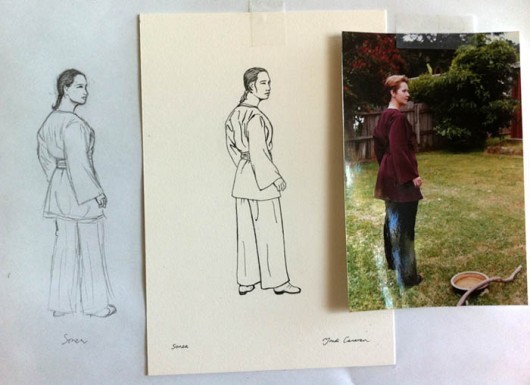
It was great to use my old illustration skills again. But it was December by then and if I was going to have the Sekrit Project ready in time I had to have at least one character done by January 1st, so I decided to not colour them. I also had to keep Stage Four simple, but that turned out to be exactly what it needed. More on that final stage of the Sekrit Projekt tomorrow.
December 27, 2011
The Sekrit Projekt: Stage Two
Back in September I had an idea for a little side project. It had to remain secret, because I wasn't sure I'd get enough time to do it, and I didn't want to disappoint anyone if I never got it finished on time. Well, anyone other than me.
For a while there I was glad I had kept it a secret. In October I was hit by that scourge of writers, and anyone who uses their hands a lot: repetitive strain injury. All activities but writing and editing had to stop. Fortunately, I'd already finished Stage One. I had the magicians robes sewn up.
I could also start Stage Two: taking photos of people wearing the robes, and other garments. Which I did with the help of friends. Here they are taking their roles in the Sekrit Project very seriously:
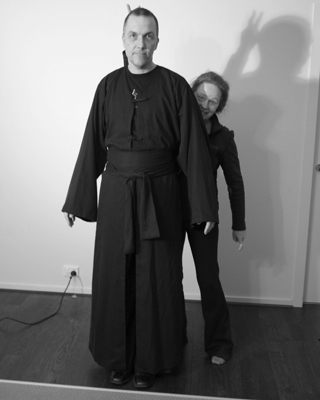
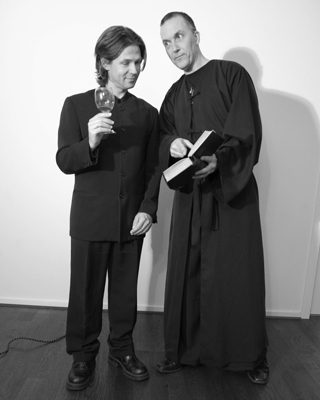

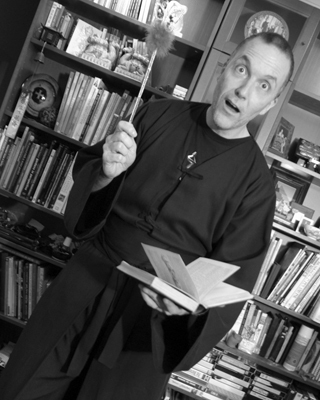
Thanks to Kerri, George and Medge, I had enough photos to start Stage Three. More on that tomorrow…
December 18, 2011
An UnCONventional Guest

It's official: I'm going to be International Guest of Honour at UnCONventional in Auckland next year. I've been wanting to go to the New Zealand convention for years, but in recent years the dates clashed with Aussie cons, publicity trips or, this year, the European Tour. Now I will be going as a guest – double the fun!
December 11, 2011
Book Release Anxiety
Last week I finally delivered The Traitor Queen to Orbit, after having polished and tweaked the book for a month, farmed it out to my agent and a few trusted friends to read, then fixed the errors they found.
What next? Well, the release month is August next year and a whole lot has to happen between then and now. There are three rounds of editing and proofing for me, and obviously there's all the design, printing, shipping, marketing, etc. In the meantime, between those editing rounds, I'm having a well-earned rest. After many, many years of writing, I'm having some issues with repetitive strain injury in my right hand, so it'll be good to get away from the computer for a while. In February I'll start writing Maker's Magic, the first book in the Millenium's Rule trilogy. I can forget all about The Traitor Queen until the release date is closer.
Well, I can try…
Occasionally someone asks me if I still get nervous when a book comes out. The answer is: yes. Every single time. Because…
Your first book:
The release of my first book was terrifying. I went to the doctor a few weeks before, worried that I had something wrong with my heart or a tumour in my brain. Turned out those disturbing episodes where my brain would freeze and my heart would lurch and then race were panic attacks. I thought panic attacks were moments when you just, well, panicked. Not that they felt like some sort of mini siezure.
It's rather obvious that your first book's release is going to be scary. Until then, only friends, family, your agent and publisher think your work is great, and deep down you're worried that they're wrong. Or lying. You think that, if this book crashes and burns nobody is going to want to publish or read a book of yours again. Ever.
The second book:
So the first book was successful, but will you be able to follow it up with something as good? Or better? Sales for second books tend to be lower than a first book, because no matter how terrific most people thought that first book was, some people will dislike it and won't buy the next one. First books in a series tend to attract attention with new ideas, last books are about exciting climaxes, but middle books are usually about development and that often isn't quite as exciting. However, I suspect fantasy readers are used to that middle book dip (also known as 'second book syndrome') and will go on to buy…
The third or last book:
Which is when people will decide what they think of the entire series. Some people will love every single word up until the climax, then decide that the entire story and you personally are evil incarnate just because they didn't like the ending. Also, it's not so good if you put all your ideas and grand scenes in the earlier books, then have nothing left for the last book. The last book ought to end with a bang, and answer some big questions. But if you do produce a thrilling third book, that leads to a problem with overly high expectations for the next series.
The first book of the next series:
The greater the success of the first series, the higher the expectations are for the next one. Readers will start to see the entire first series as one book, which means they expect the first book of your new series to surpass the last book of your previous series. But you still need the last book in your new series to be more amazing than the first. If you manage this, you have the same problem with the next series. Can you see where I'm going here? There's going to be a point where you have to ask the reader to trust you, when you start a series at a simmer rather than a rapid boil so you don't boil the pan dry by the end.
Then there's setting. Even if you set the new series in the same world, you'll probably be taking the story in a new direction. You can't get around this by writing the same sort of thing again, because people will start criticising you for writing the same story over and over. But if you do something new with it, some people aren't going to like it as much as the first series. They enjoyed the first experience and want to repeat it over and over.
If you set the new series in a new world, you'll encounter fans of the first series who simply won't read the new books. They're fans of the characters and world of that first series, not fans of you and your writing. Then, on top of that, the readers who tried the books set in your first world and didn't like it won't try those in your new world, even though it may be something more to their taste. It can feel like you're losing readers left, right and centre. Fortunately, this is countered by the fact that some readers will discover your second series first and love it.
Second and third book of the second series.
Along with the problems of comparison to previous series, there's the same old middle book dip and like/dislike decision about the whole series on the release of the last book. There's also a slowly shrinking pool of plot options – the need to avoiding repeating yourself means that, for example, if you have a Romeo and Juliet style romance in one book you've effectively 'used it up' when it comes to relationship scenarios in future books. (I've been worrying about being typecast as 'the author who kills lead characters' since the Black Magician Trilogy.) You can try to write of a different sort of character from a different culture/time in a similar situation to an earlier character to show contrast (as I did with Tessia from The Magician's Apprentice) but some people will still see this as repeating yourself.
The stand-alone book
If it doesn't relate to an earlier series, some people won't read it. If it relates to an earlier series but doesn't involve the same characters, readers who fit the 'fans of the characters and world, not fans of you' category won't read it. Some people won't read it simply because they prefer series. On the other hand, you may attract a few new readers who don't like reading series.
And on and on…
You can probably see that there are always reasons to worry about the release of a book. But there's an extra one that becomes more relevant the more books you've written: the worry that readers are getting tired of you and the sort of book you write. There are trends in the book reading world. They swing slow and wide, and can wipe out entire genres for decades – which may return in an almost unrecognisable form (like horror and paranormal romance).
So yes, I never stop worrying when a book is released. But it does help to remember that you can't please everyone all of the time. I've found that, as long as I'm finding what I do fresh and fun, most readers will too. Hopefully we'll both keep enjoying my stories for many years to come.
Trudi Canavan's Blog
- Trudi Canavan's profile
- 6645 followers



